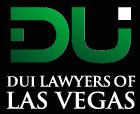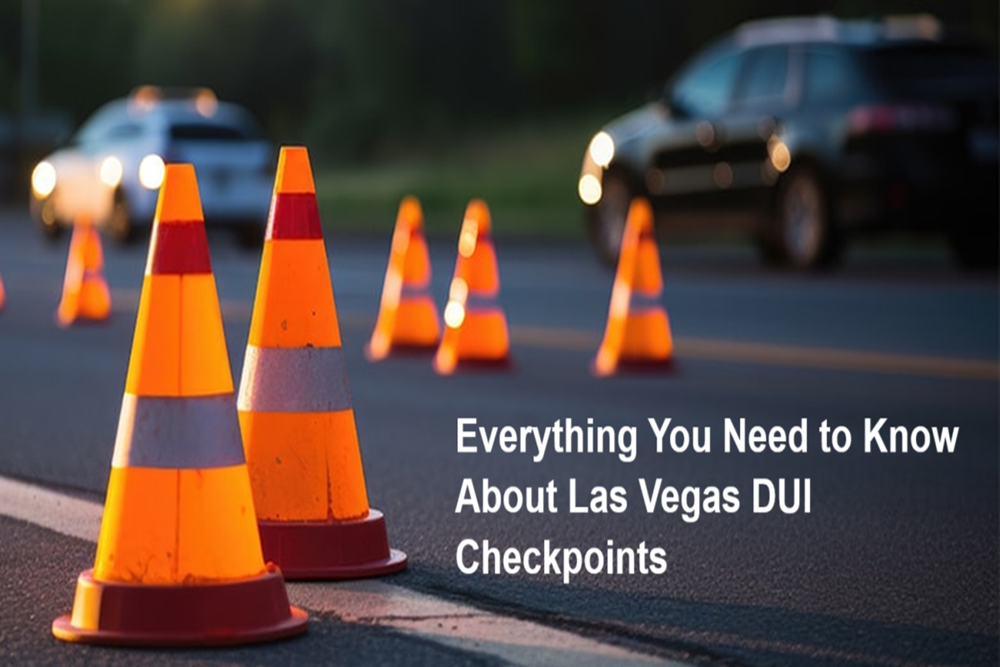Las Vegas is a 24-hour city full of entertainment options that often involve drinking. However, driving under the influence (DUI) of alcohol is illegal if your blood alcohol concentration (BAC) is 0.08 or higher while behind the wheel. In an effort to deter drunk driving, Nevada law allows DUI checkpoints in the state to screen drivers for signs of intoxication.
Are there DUI checkpoints in Las Vegas? What are your rights if you are stopped? Our Las Vegas DUI lawyers answer frequently asked questions about DUI checkpoints.
Are DUI Checkpoints Legal in Nevada?
Yes, police can set up administrative roadblocks on public roads to see if motorists show signs of alcohol impairment, as long as they follow the law. Nevada Revised Statute (NRS) 484B.570 provides clear guidelines and minimum requirements for setting up roadblocks, including:
- The roadblock must be visible to approaching traffic at a distance of at least 100 yards in either direction.
- A sign with the word “STOP” that is readable from at least 50 yards away to oncoming traffic must be placed near the center of the roadway.
- There must be at least one red flashing or intermittent light on the side of the roadway that is visible to oncoming traffic from at least 100 yards away.
- Warning signs must be placed in the roadway containing sufficient wording to warn of the upcoming police stop.
- A burning light or flare must be placed 700 feet from the roadblock entrance in urban areas and one-quarter mile from the roadblock entrance in rural areas.
If the police do not follow these rules, the DUI checkpoint may not be legal. Additionally, drivers who are asked intrusive or discriminatory questions at the checkpoint or are instructed to pull over without probable cause may have a strong defense against DUI charges.
RELATED: Lack of Probable Cause Examples for a DUI Stop or Arrest
What Do I Do If I am Stopped at a DUI Checkpoint?
If you are stopped at a DUI checkpoint in Las Vegas or anywhere in Nevada, here is what you can expect.
Request for Your License
The police will ask for your driver’s license and vehicle registration. Be cooperative and calm when the officer asks for this documentation. The police are looking for signs that you may be intoxicated.
Police Questioning
The officer may start questioning you at this point. Remember, drivers have the right to remain silent and not say anything that could be used against them in court. You do not have to answer questions about where you are coming from, where you are going, or what you have been doing.
However, keep in mind that refusing to answer questions could open you up to more scrutiny. Consider answering basic questions politely. You will be allowed to pass through the checkpoint if there is no probable cause to assume you are driving under the influence of alcohol.
Possible BAC Testing
If the police ask you to take a chemical test to measure your BAC, it may be in your best interest to comply. Under the Nevada Implied Consent Law, you risk losing your driver’s license for at least one year if you refuse a blood or breath test. It is possible an experienced DUI lawyer in Las Vegas can identify testing errors and get your case dismissed.
Can You Turn Around If You See a DUI Checkpoint?
DUI checkpoints must be properly marked according to Nevada law, so you should see warning signs of an upcoming roadblock from a distance. If you notice the checkpoint and want to avoid it, you can turn around or take a detour as long as you do not perform an illegal maneuver, such as:
- Making an illegal U-turn
- Making an improper turn
- Driving in the wrong direction
- Driving over the sidewalk
- Running a stop sign or red light
You can, however, turn down a side street or take another lawful exit path before you get to the DUI checkpoint entrance. After entering the DUI checkpoint, you are legally required to proceed.
What If I Refuse to Stop at a DUI Checkpoint in Las Vegas?
It is illegal to blow through a DUI checkpoint or disobey police orders to stop. According to NRS 484B.580, a driver may be charged with the following for refusing to comply:
- Gross misdemeanor: If no death, substantial bodily harm, or property damage of more than $1,000 occurs
- Category B felony: If the driver directly causes death, substantial bodily harm, or property damage of more than $1,000
Failing to stop at a DUI checkpoint and causing injury, death, or significant property damage may result in at least one year in state prison, at least $5,000 in fines, or both.
What Are “DUI Blitzes” in Las Vegas?
Although DUI checkpoints are legal in Nevada, the Las Vegas Metropolitan Police Department has preferred a different approach to cutting down on impaired driving in recent years. Instead, DUI blitzes in Las Vegas involve a large number of officers patrolling a targeted part of the city at the same time.
As seen by recent DUI blitz results, hundreds of citations and dozens of arrests can happen on a busy night or holiday weekend.
When Do Las Vegas DUI Blitzes Happen?
Past DUI blitz patterns show that they typically happen on a Saturday night, holiday, or over a high-volume weekend in Las Vegas. If you are driving in Las Vegas during a busy weekend, you can expect more officers to be on patrol and looking for drunk drivers at that time.
RELATED: What To Do If You Are Pulled Over for a DUI in Las Vegas?
Contact an Experienced Las Vegas DUI Lawyer Today
Because Nevada DUI laws are among the strictest in the country, it is important to have a skilled DUI attorney on your side to protect your rights after an arrest. Working with our team at DUI Lawyers of Las Vegas can help you get results by building a robust defense.
Do not let an unfair DUI arrest ruin your life. Contact our Las Vegas DUI lawyers to schedule a free consultation with a knowledgeable attorney. We will discuss your rights and what options are available to you.

